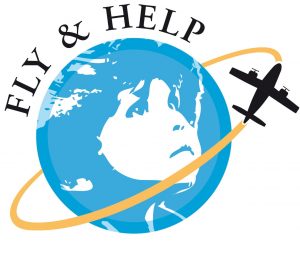
Dame Nkwanta WaSH-Project
Background of the School WaSH project
In schools, WaSH projects are an important building block for positive behavioural changes in children with regard to hygiene.
WaSH means: water, sanitation and hygiene. Access to clean drinking water and adequate sanitation is of fundamental importance for the children in Ampaha. Only in this way diseases can be prevented, important hygiene measures learned and regular school attendance – for both boys and girls – be made possible.
Another positive side effect of the School WaSH project is that once the pupils have learned the new hygiene standards, they help to raise awareness among their parents,family and environment and become important agents of change in their communities.
It should be kept in mind at all times: Children are not only the generation of the future, but also future parents – and what they learn at school, they will pass on to their own children.
WaSH projects in schools therefore help not only the pupils, but also the whole community and future generations.
The WaSH project in Dame Nkwanta
Background and problem description
The town of Dama Nkwanta is located 25 km from the district capital of Prang and has about 5,200 inhabitants.
The children are taught outdoors and in temporary sheds. This leads to many problems. The children are distracted in class and cannot go to school at all when it rains, which leads to poor performance.
Especially for the girls the lack of toilet facilities is a big problem. There is no hygienic toilet facility, so that the children have to relieve themselves outside. As they have no privacy for their monthly hygiene, they do not come to school during this time. These conditions lead to a high number of school drop-outs. Teenage pregnancies and thus a low standard of living are often the result. Water-related diseases caused by contaminated water are rampant among pupils and teachers.
Benefits of the project:
- Access to clean water, adequate sanitation and hand washing facilities
- Promotion and training in the field of hygiene
- to enable girls to attend school even during their menstruation
- reducing diseases caused by contaminated water
- Meeting the drinking water needs of the school
Conclusion:
The project aims to improve the hygiene and health conditions of the beneficiaries (pupils, teachers and community members). Clean water, toilets and school places contribute to good health.
The cornerstones of the project are the establishment of appropriate infrastructure and raising awareness of hygiene issues.
The local community will be involved at all levels of the project. This will strengthen the community sense of ownership and make the project sustainable. The information and training measures will also have a certain multiplier effect, i.e. the pupils, teachers and all those involved in the project will disseminate the new knowledge to the community. This is the only way to achieve a profound and lasting improvement in the hygiene situation throughout the Community.
Status: in realisation
Sponsor: Fly&Help
Costs: approx. 60,000€




